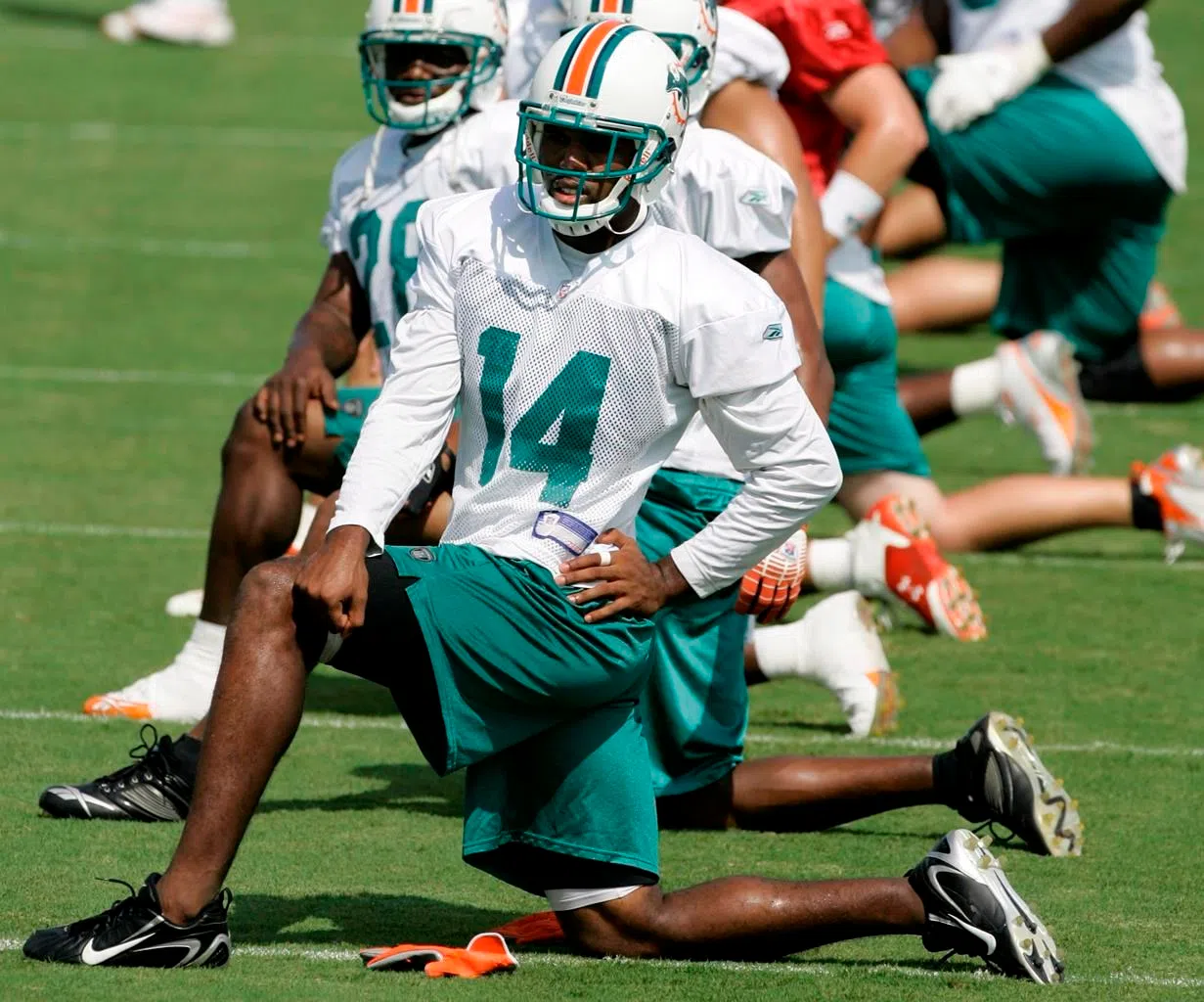
Release by Dolphins still leaves bitter taste in former CFL player Sam’s mouth
Family has helped ease P.K. Sam II’s pain, but not his anger towards Nick Saban.
Sam’s father died father died Dec. 14, 2006 at age 49 just over a month after being diagnosed with cancer. The disease robbed Sam, then 23, of the opportunity to further bond with the man who helped him believe he could excel in athletics.
But putting family first resulted in Sam being released by the Miami Dolphins. On Wednesday, the 10th anniversary of his father’s death, the veteran receiver lashed out at how Saban, the former Dolphins head coach now leading Alabama, handled the matter.
“Thank you nick saban. 10 yrs ago today you cut me from the @MiamiDolphins bc I flew home to hug my dad before he died. CLASSY!” Sam tweeted.



